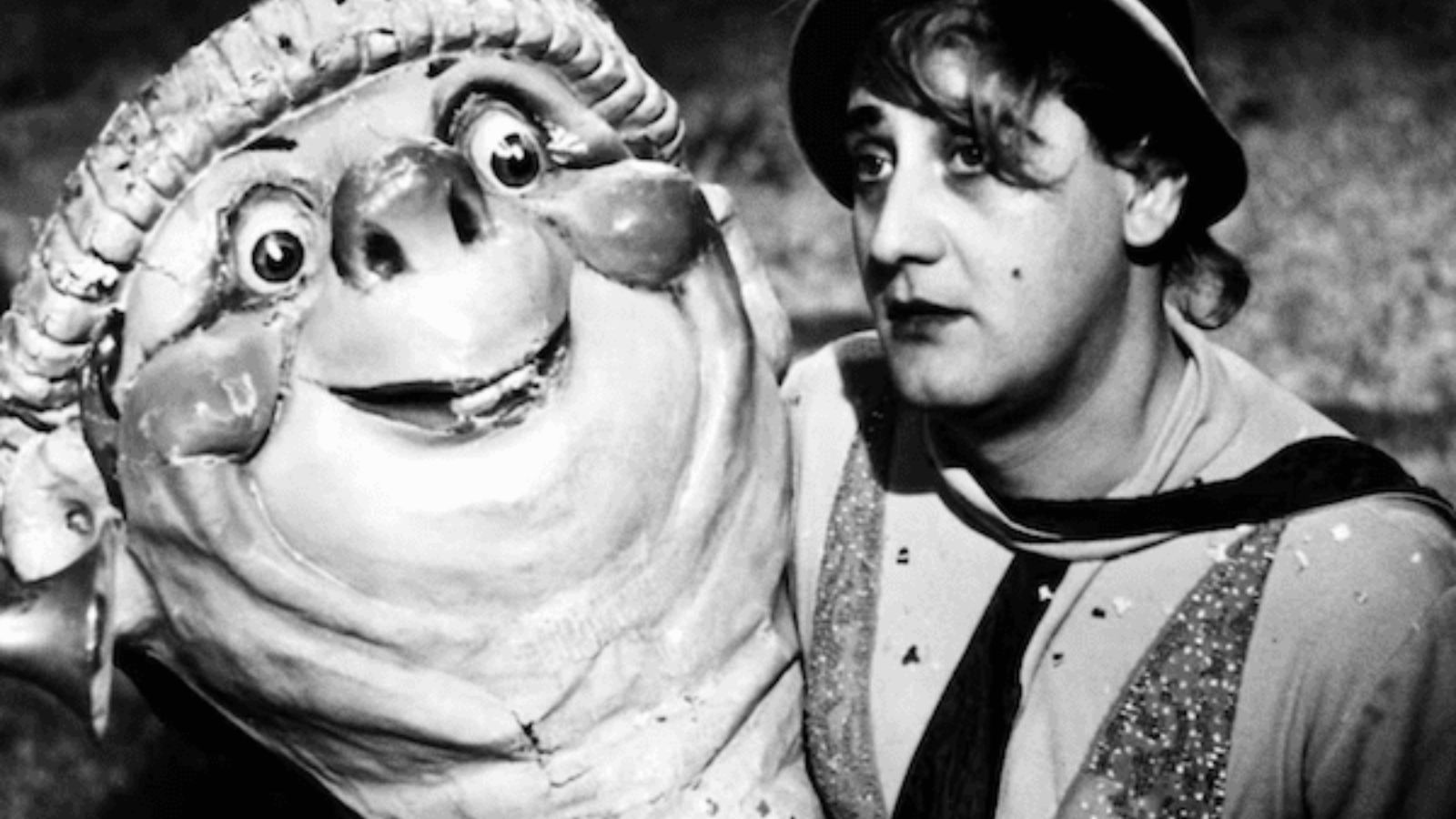Don't miss your future favorite film!
Subscribe to our newsletter and get the latest updates from the SIFF community delivered straight to your inbox.
Don't miss your future favorite film!
Subscribe to our newsletter and get the latest updates from the SIFF community delivered straight to your inbox.
Tova Gannana | Tuesday, April 18, 2023

I Vitelloni (1953) film notes by Tova Gannana for Greg Olson’s Life is a Feast: The Cinema of Federico Fellini series, running April to June 2023 at SIFF Cinema Uptown.
Fausto Moretti (Franco Fabrizi) has a vacant look. “Who me?” he appears to be asking. He wants to seduce; thinks only of himself. Women are conquests; friends are enablers. He has no job; from his father he asks for money. He is a scoundrel; is loveable.
Moraldo Rubini (Franco Interlenghi) sees the big picture. The town needs his compassion. Moraldo needs to leave the town to survive.
Leopoldo Vannucci (Leopoldo Trieste) is a playwright because he has written a play. In his room he types out his characters lines late into the night. He taps on a chamber maids window. She happily pokes her head out. He grows a goatee. He fashions himself the towns resident poet; longs for understanding and recognition in a theatrical community. He recites his play in a cafe to his idol, Sergio Natali (Achille Majeroni), an aging actor who performs a monologue in a burlesque show. Leopoldo’s friends roll their eyes and gnash their teeth. They are interested only in the female dancers who have gathered.
The friends hang out at the borders of their town; they never cross them other than in talks and promises to one another and to themselves. Boats and trains lead to other places; one must have a ticket.
They do what they are good at; walking around. They each have a talent. Alberto (Alberto Sordi) the clown, Moraldo the conscience, Fausto the scoundrel and their philosopher, Leopoldo the playwright, Ricardo (Ricardo Fellini) the singer who takes the stage for the towns events.
Cut from one cloth, they dress in uniform; baggy suits, long trenches, scarves hanging around their neck. They have an identical step. They walk in circles; their talk leads nowhere. Their conversations are lively; they have dreams but not the grit to actualize them.
I Vitelloni (1953) begins at summer’s end. With the an annual tradition of crowning Miss Mermaid. “Everybody’s here,” the narrator tells us, “And of course, we’re here to: the guys...This is Alberto. This is Leopoldo, the intellectual. And here’s Moraldo, the youngest of the bunch. The tenor singing here is Ricardo. And this is Fausto, our leader and spiritual guide.”
Moraldo’s sister Sandra (Leonora Ruffo) is crowned Miss Mermaid 1953 just as a storm breaks. Taken by surprise the townspeople dash indoors to continue their celebration. Sandra faints. She is pregnant by Fausto and has not told her mother.
“Fausto!” the friends cry out in admonition or adoration. So does Sandra.
The guys can be forgiven for their layabout ways; they have people who won’t let them be forgotten. Around them a net; they are mostly safe. Their fathers and mothers want them to work for money and honor. Fausto must make right by Sandra, is the family plan though Fausto is not a family planner.
I Vitelloni opens with the five friends singing in the street as their dark shadows cast across a stone wall. They come as a package. Fausto grows a mustache and Moraldo notices the others grow mustaches too. Fausto shaves his clean; he resists being copied.
At Carnival Alberto brakes down. Streamers falling from balconies, confetti tossed in the air by revelers. Alberto is one of the last to stop dancing and go home. Staggering, he is helped by Moraldo. He realizes he is very alone.
I Vitelloni is also a film about labor. Who wants to work and who has to work? Can only the rich enjoy unemployment while everyone else must be useful for society to continue on? Historically, Bright Young Things have always thrived in the wealthy. The guys talk about getting jobs. Fausto gets one and loses it quickly. They are loafers but not without a sense of self. They hope to one day figure it out.
For every season there is a town. There is a time to leave by train with family and friends bidding adieu at the station. The way Sandra and Fausto are sent off to Rome for their honeymoon. Handkerchiefs waving.
“What else is there for us to do? Another day has come to an end. Nothing left but to go home, just as on every night,” the narrator says. Moraldo stays on the streets. Not for lack of where to be welcomed but because in the silence of the night he finds the sounds of the town in the dark. At 3 am as Moraldo lies on a bench and asks, “What if I left too?” he encounters Guido, a teenage boy who is whistling and skipping on his way to work. They sit together for a few minutes. Moraldo offers him a cigarette but he is without a pack. Guido is mostly happy working at the train station. Unconnected to Moraldo’s friends; like a hopeful sprite he sprints in and out of Moraldo’s life. It is fitting then that Guido is the last person in the town to see Moraldo as he takes an early morning train to Rome having told no one. Guido knowing only Moraldo and not his circle of family and friends has no one to tell.
Don't miss your future favorite film!
Subscribe to our newsletter and get the latest updates from the SIFF community delivered straight to your inbox.
Don't miss your future favorite film!
Subscribe to our newsletter and get the latest updates from the SIFF community delivered straight to your inbox.